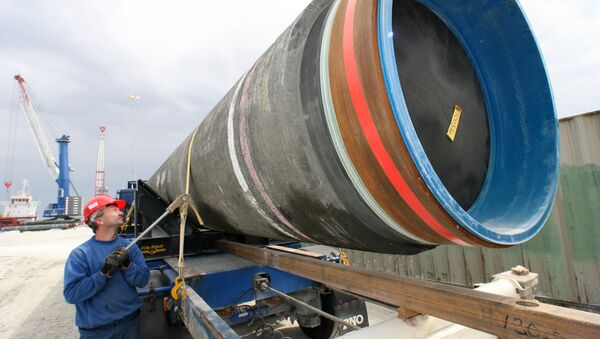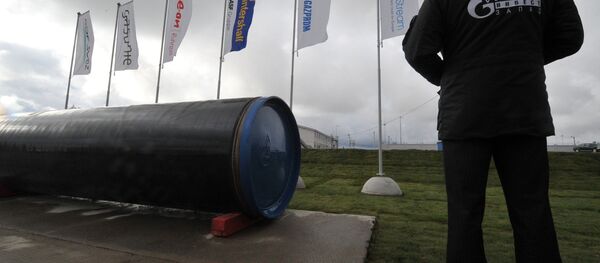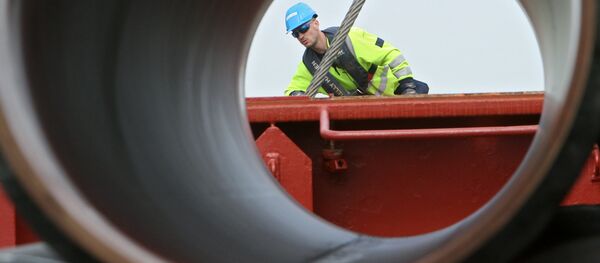The Nord Stream-2 project, which plans to use the original Nord Stream pipeline for 86-percent of the route before branching off, could provide up to 55 billion cubic meters of direct gas supplies from Russian shores through the Baltic Sea to the German coast.
Russia's energy giant Gazprom and European companies BASF, E.ON, Engie, OMV and Shell are shareholders in the project.
"I think we need broader support for the project in the European Union. That’s why, I believe we should increase our efforts to convince the European Commission that the project is in Europe’s interest," Seele told reporters.
"All that I'm seeing and hearing is that there are many misunderstandings [between the project proponents] and the European Commission about what the true nature of the project is," the OMV’s chief said, adding that there was a need for clarity on how the existing transit capacity would be used.
The European Union’s Third Energy Package prohibits the simultaneous ownership of both the gas and the pipeline through which it flows.
A number of European senior officials, including Italian Prime Minister Matteo Renzi, European Commission Energy Union Vice President Maros Sefcovic and European Council President Donald Tusk said that the implementation of the Nord Stream-2 project was likely to affect the bloc's energy security.



